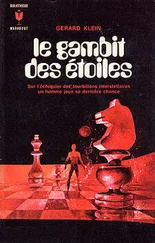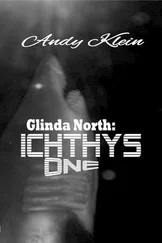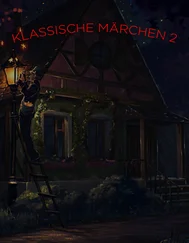Lee Klein - Jrzdvlz
Здесь есть возможность читать онлайн «Lee Klein - Jrzdvlz» весь текст электронной книги совершенно бесплатно (целиком полную версию без сокращений). В некоторых случаях можно слушать аудио, скачать через торрент в формате fb2 и присутствует краткое содержание. Город: Montclair, Год выпуска: 2017, ISBN: 2017, Издательство: Sagging Meniscus Press, Жанр: prose_magic, на английском языке. Описание произведения, (предисловие) а так же отзывы посетителей доступны на портале библиотеки ЛибКат.
- Название:Jrzdvlz
- Автор:
- Издательство:Sagging Meniscus Press
- Жанр:
- Год:2017
- Город:Montclair
- ISBN:978-1-944697-32-7
- Рейтинг книги:3 / 5. Голосов: 1
-
Избранное:Добавить в избранное
- Отзывы:
-
Ваша оценка:
- 60
- 1
- 2
- 3
- 4
- 5
Jrzdvlz: краткое содержание, описание и аннотация
Предлагаем к чтению аннотацию, описание, краткое содержание или предисловие (зависит от того, что написал сам автор книги «Jrzdvlz»). Если вы не нашли необходимую информацию о книге — напишите в комментариях, мы постараемся отыскать её.
Jrzdvlz — читать онлайн бесплатно полную книгу (весь текст) целиком
Ниже представлен текст книги, разбитый по страницам. Система сохранения места последней прочитанной страницы, позволяет с удобством читать онлайн бесплатно книгу «Jrzdvlz», без необходимости каждый раз заново искать на чём Вы остановились. Поставьте закладку, и сможете в любой момент перейти на страницу, на которой закончили чтение.
Интервал:
Закладка:
“My dear Mr. Merriweather, do you, a man of remarkable appearance and extraordinary history, cursed by the community while still inside your mother, cursed at birth by your own mother, cursed by nature to transform and commit acts of unspeakable instinct, do you, Mr. Merriweather, my only remaining friend on earth—if this darkened beach is not some sliver of the afterlife artfully imitating seashore—do you take this bodiless embodiment of innocence that traveled the beach and stood on this balcony for a century, not in search of some lost sailor per legend, but to lure you as a bird’s plumage attracts its mate? This gown wears its innocence upon its sleeves and will take not your hand in its hand—it being a dress without hands and you being a beast with intimidating horns for fingers—instead it offers its every inch as cover for your current form, what you deem a misfortunate compendium— do you, Mr. Merriweather, take as your lawfully wedded wife—as lawfully as my pronouncement and this lantern allow, with the surf and night sky behind me on one side and the country stretching ahead on the other as witnesses—will you pull this dress over your head and let courage animate the dress the same as the spirit that presented it to us this evening? Do you, Mr. Merriweather, accept this dress and agree to consider your innocence thereafter restored?”
My new wife concealed me, horns to tail. Wearing her, I searched the dunes for crab apples I enjoyed late in the season. A sleep-deprived Larner ate on the balcony. He shielded his eyes as gentle breakers turned a greenish gold.
“The dress is lighter than those capes at least.”
“So our travel will be easy.”
“It is a solid walk to the ferry.”
“How does it feel, your first day of innocence regained?”
Trailing breezes from the storm kept us cool as we walked the shore. Only a few shacks toward the dunes. Most lived bayside.
Larner mentioned all the aisles he had walked with his daughters, unions overseen by family and friends. Each now seemed replaced with the joy of the beast beside him. The innocence of it made his spirit as light as the mist that rose from the shore break.
The dress was a second skin, loose and silky other than the starchy veils through which I could see well enough. Larner poked fun at my century alone with gulls and greenflies and what I had once thought a woman who sang to me as she walked the beach. A melody of longing, and still I heard it unplayed within me. It propelled me step for step with Larner. How animated he had been as wonder possessed him, the depressive front across his eyes burned off by spectacle.
As we walked along the water, Larner said he must give me a sort of wedding gift, a list of the thirteen essential virtues delineated by Benjamin Franklin in his autobiography. Referring to them as a recipe for moral perfection, Larner relayed them from memory, and asked me to repeat them until we both were sure they were lodged forever within me:
“The first is temperance: eat not to dullness, drink not to elevation. The second is silence: speak not but what may benefit others or yourself and avoid trifling conversation. The third is order: let all your things have their places, let each part of your business have its time. The fourth is resolution: resolve to perform what you ought, perform without fail what you resolve. The fifth is frugality: make no expense but to do good to others or yourself, waste nothing. The sixth is industry: lose no time, be always employed in something useful, cut off all unnecessary actions. The seventh is sincerity: use no hurtful deceit, think innocently and justly, and, if you speak, speak accordingly. The eighth is justice: wrong none by doing injuries or omitting the benefits that are your duty. The ninth is moderation: avoid extremes, forbear resenting injuries so much as you think they deserve. The tenth is cleanliness: tolerate no uncleanliness in body, clothes, or habitation. The eleventh is tranquility: be not disturbed at trifles or at accidents common or unavoidable. The twelfth is chastity: rarely use venery but for health or offspring, never to dullness, weakness, or the injury of your own or another’s peace or reputation. And, finally, the thirteenth is humility: imitate Christ and Socrates.”
Step for step, we walked as though hand in hand, as a rare southward breeze directed us toward a village of fisherman and those who needed an island to increase their sense of worth. Ahead, we saw the central steeple, wide-porched mansions removed from the shore and bay equally at the island’s midpoint, protected on either side by shacks. I had only perceived life here when concealed by a loose netting of clouds. Now we crossed dunes on planks that gave way to streets half-buried in sand.
If anyone bothered us, Larner said, we would not linger: we’re rushing to get this bride to her wedding ceremony, need to arrive in a hour, just outside Umbria, must hasten to the ferry or forever blame whoever delays us.
“And remember,” he added, “if we are threatened, a simple growl should suffice.”
“A growl from such a gown should unsettle anyone.”
Larner stepped more quickly toward the bay.
We passed an open area with a central gazebo around which men and women attended to midday duties.
“It is just beyond—the dock—ahead,” I said.
Larner laughed. “To hear that voice through those thick veils,” he said, “it brings me joy.” This happy spirit possessing Larner seemed more conspicuous to the island community than the anonymous bride, for it truly seemed he was a happy father taking his daughter to the mainland on her greatest day. It may have seemed stranger to some that the gown was so luxurious and the clothes worn by her escort surely cost more than most on the island earned in a year. Yet we traveled not on horseback or carriage, nor had we secured a private vessel across the bay, but instead opted to take the sloop each passenger helped row across the water.
On the sloop, a man possessed by rum and more than sufficient commitment to the democratic spirit suggested that the bride must also row, citing a rule that applied to all except the pregnant and the sick. Since her gown was so exceedingly white she might prove her innocence by taking an oar.
“It is her wedding day,” said Larner, “and besides she is exceedingly frail and tired from our journey down the shore from the northern settlement.”
“It washed away years ago.”
“A shack, where we prepared her betterment.”
The man cited a grandmother, age eighty, who once had rowed. He was quickly shouted down. He was drunk and all else seemed sober, dissatisfied with a confrontational stain upon the perfect weather.
Larner approached the captain at the stern. He whispered about how his daughter was terribly scarred, unable to show her face, hence the veils, and yet it was his wish for his daughter to have this special day, her one blessed moment on this earth, for the man she would marry was blind and cruel, life ahead would be ceaseless sorrow, and so would the captain accept a small note to ensure that his daughter enjoyed a day of rest and pleasure before a lifetime of service on the mainland.
The captain pocketed the note Larner slipped to him. A hand on the cutlass at his hip, he told the drunkard to shut it or be thrown into the bay.
The drunk muttered doubts. He asked to see her skin. It was common at the time for the shore and wild pinelands of the eastern coast to shelter fugitives. There they were obscured from all those lacking knowledge of the sand trails.
“Show us your pretty hand,” said the drunk.
Читать дальшеИнтервал:
Закладка:
Похожие книги на «Jrzdvlz»
Представляем Вашему вниманию похожие книги на «Jrzdvlz» списком для выбора. Мы отобрали схожую по названию и смыслу литературу в надежде предоставить читателям больше вариантов отыскать новые, интересные, ещё непрочитанные произведения.
Обсуждение, отзывы о книге «Jrzdvlz» и просто собственные мнения читателей. Оставьте ваши комментарии, напишите, что Вы думаете о произведении, его смысле или главных героях. Укажите что конкретно понравилось, а что нет, и почему Вы так считаете.












